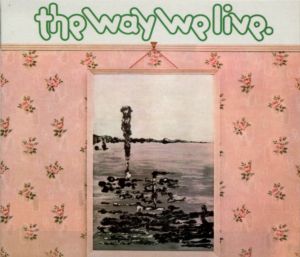
- Format: MP3

Classic 1971 album by UK band Tractor, appearing under a different name. Truly beautiful progressive/space rock album it mixes the epic quality of Led Zep with a spacey Pink Floyd feel and the mushroom weirdness of The Pink Fairies and Hawkwind. "Willow" is a masterpiece of UK underground rock and it's easy to see why John Peel signed this band way back in the early '70's.
The story of Tractor began in Rochdale, Lancashire in 1966, when guitarist/vocalist Jim Milne, drummer Steve Clayton, bassist Mick 'Slim' Batsch and vocalist Alan Burgess formed a beat group called The Way We Live. By the late sixties, however, the band had slimmed to a duo with only Milne and Clayton, and they, with the help of local engineer John Brierly, recorded a demo tape which they sent off to the nation's record companies. One recipient was Dandelion Records, the label set up by Radio 1 DJ John Peel and his manager Clive Selwood. Not believing the songs had only been recorded by two people, they promptly signed the 'band' and put them in a London studio. Two days later they presented Peel and Selwood with their debut album, "A Candle For Judith" (DAN 8004). Released in January 1971 and named after Clayton's girlfriend, the album is now the rarest of all the Dandelion label's released and currently fetches around BP 100 on the collector's market.
Despite critical acclaim, the album failed to take off, so Peel suggested a name change to Tractor and the first release under this name was the 1972 maxi-single "Stoney Glory"/"Marie"/"As You Say" on Dandelion via Polydor (2001 282). This was followed by the album "Tractor" (2310 217) which is currently selling for around BP 60. Once again, critical acclaim was forthcoming but trough rumoured to have sold nearly 50,000 copies and despite the band undertaking their first live dates, mass success still eluded Tractor.
With the collapse of Dandelion, Selwood attempted to secure the band a deal with CBS Records but though they recorded "We Three Country Gentlemen" as a demo for the label, a deal was not forthcoming. Instead, it was Jonathon King's 'UK' label who picked up on the band and released 1975's "Roll The Dice"/"Vicious Circle" single (UK 93). But, once again, success was not forthcoming and so the band fell apart in early 1975.
However, in the Summer of 1976, Milne and Clayton recruited bassist Dave Addison and set about gigging anywhere that would book them, including appearances at Manchester's Electric Circus and the Deeply Vale Free Festival. They also teamed up again with their old engineer John Brierly, who now owned Cargo Records, and recorded the "No More Rock'n'Roll"/"Northern City" single which was released in November 1977 by Polydor Records (2058 942) before they again went their separate ways.
In 1980, Milne, Clayton and Addison re-grouped, added blind musician Tony Crabtree on keyboards/guitar and released the "Average Man's Hero"/"Big Big Boy" single on Roach Records (R.R. 2). However, the cost of touring was prohibitive and so by the end of 1982, Tractor finally came to an end, though the various members have all been actively involved in the re-issuing and re-promoting of their back catalogue as the world finally wakes up to the genius that was Tractor.